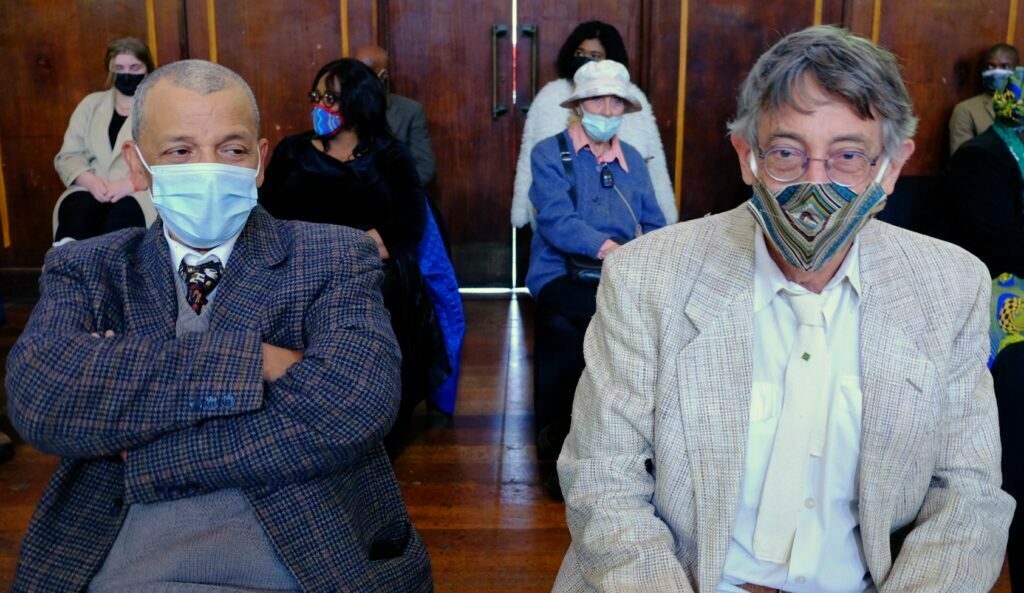By JONATHAN WALTON, Makana Citizens Front (MCF)
Before the five democratically-elected MCF PR councillors were unlawfully and unceremoniously removed from Council with unsubstantiated lawful support from the Municipal Manager and Speaker, the MCF councillors submitted several letters and critical motions on different governance and service delivery issues. Some of the MCF motions were immediately submitted after the local government elections. The submitted motions were not tabled for consideration in a Council meeting for unexplained reasons.
Makana’s ‘Council’s Standing Rules and Orders for the Meetings of the Council and its Committees’ was adopted as a council resolution but was never gazetted by the provincial government as a municipal by-law. The content of the standing rules document that was adopted is a copied version of the South African Local Government Association guideline document published in 2016.
The fact that the standing rules were adopted without being gazetted in the official provincial gazette as a by-law is a violation of section 160(6) of the Constitution, which states that “a Municipal Council may make by-laws which prescribe rules and orders for (a) its internal arrangements; (b) its business and proceedings; and (c) the establishment, composition, procedures, powers and functions of its committees.” It was surprising that the ANC councillors did not even notice the transgression.
Furthermore, section 162(1) of the Constitution states that “a municipal by-law may be enforced only after it has been published in the official gazette of the relevant province.” This did not happen. Important draft by-laws that are apparently under review for a long time cannot be implemented because of non-compliance with constitutional imperatives.
Regarding the “war of words” between the DA Councillor and Speaker (Councillor Matyumza), it is evident that the Speaker is not au fait with his legal obligations as stated in Section 37(a) of the Municipal Structures Act, which is chairing of meetings. At the inauguration of councillors’ meeting, the Speaker, in the presence of the MEC for Co-operative Governance and Traditional Affairs, spoke about how he would enforce his own will on Councillors who dare to challenge his authority.
In his justification to reject the DA’s motions with condescension, the Speaker, whose conduct in council meetings was already questionable and in direct conflict with the Code of Conduct for Municipal Councillors, would argue that he enjoys unencumbered delegated powers. Assuming the Speaker, who occasionally doubled up as a gatekeeper for the Executive Mayor, Municipal Manager, and Senior Managers, is correct about his delegated powers, the following questions would suffice:
(1) What functions were delegated?
(2) How was the delegation done, and by whom?
(3) Were any delegations reviewed when the new council was elected?
Section 59(1) of the Municipal Systems Act states that “a municipal council must develop a system that maximises administrative and operational efficiency and provides adequate checks and balances”. There is no system of delegation policy in place. Without a written and compliant delegation policy, the Speaker cannot unilaterally and arbitrarily decide which motions to table.
The review of the delegation systems is addressed in Joint Circular No.1 issued by the CoGTA, National Treasury and SALGA (October 2021). This important circular was never brought to the attention of the newly elected councillors.
It is the municipal council and not the Mayoral Committee, Speaker, Mayor or Municipal Manager who decides on delegated functions. In this regard, the Speaker is powerless. Section 151(2) of the Constitution states that a municipality’s “executive and legislative authority is vested in its Municipal Council”. By refusing to table written motions, the Speaker’s attitude and conduct directly conflict with the Constitution.
It is not unusual for any Councillor, including ANC Councillors, if they so wish, to challenge the Speaker’s refusal to table motions. In any event, ANC councillors should not question the Speaker’s authority. If the Speaker refuses to table a motion, they must give valid reasons for his decision to refuse the tabling of a motion. It is an essential administrative law principle.
Regarding the performance of the Municipal Manager, the relationship between Council (employer) and Municipal Manager (employee) is regulated by the Labour Relations Act (1995), Basic Conditions of Employment Act (1997) and Local Government: Municipal Performance Regulations for Municipal Managers and Managers directly accountable to Municipal Managers (2006).
The fact that the Auditor-General issued three consecutive disclaimer reports with material irregularities rightfully triggered the interest of the MCF and DA. The Municipal Manager’s fiduciary responsibilities (i.e. contractual obligations) are clearly spelt out in Section 61 of the Municipal Finance Management Act (2003). For example, Section 61(1)(a) unambiguously states that “the accounting officer (Municipal Manager) of a municipality must act with fidelity, honesty, integrity and in the best interest of the municipality in managing its finances”.
When the Auditor-General was invited to present the “very bad” findings, the MCF demanded accountability. Surprisingly, the Speaker listened and supported the proposal. The MCF proposed that the Municipal Manager be allowed to respond to all paragraphs in the Auditor-General’s report. Sadly and disappointingly, at the last Council meeting, the Municipal Manager tabled an unconvincing and dishonest report. Instead of addressing the findings directly as per his contractual obligations, the Municipal Manager dodged accountability and blamed “legacy problems” created by previous administrators. Again, the MCF proposed that the Municipal Manager be given a second chance to adhere to the MCF’s earlier proposal fully.
In conclusion, the power to hold the Municipal Manager accountable is with Council and not the Speaker. The role of the Speaker is to facilitate (chair) at Council meetings and manage the conduct of Councillors within the framework of the rules.
The Speaker’s attention is drawn to Rule 10.2, which states, “Any ruling made by the Speaker must be made having due regard to the provisions of the Constitution, national and provincial legislation, municipal by-laws and policies, the rule of law and the rules of natural justice.”
The Speaker’s blocking of accountability should not drive municipal dysfunction. Makana deserves better.




